Danube free: why musicians from Hungary, Japan and England came to Kazan
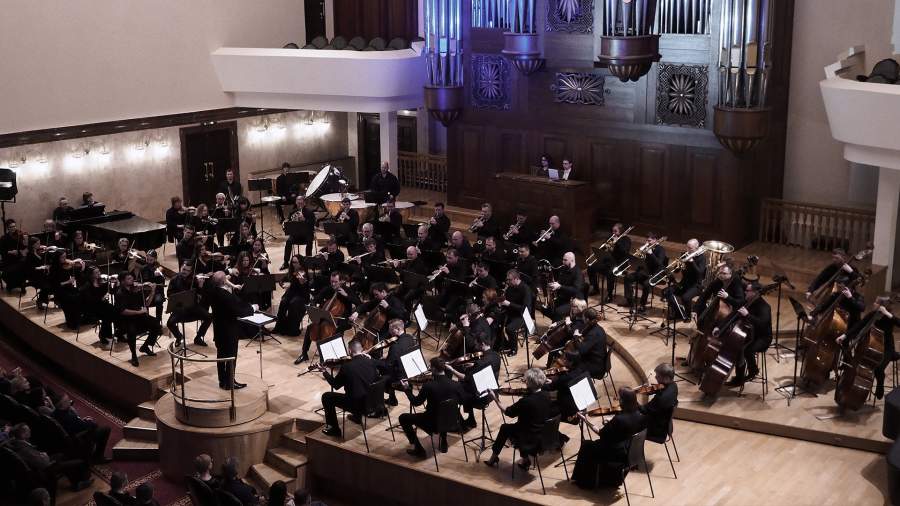
Artists from Hungary, Japan, Great Britain and Russia met at the VI International Organ Festival, which started on March 12 in Kazan. The show turned out to be international both in terms of musical programs and the cast. And although the repertoire of all concerts consists entirely of works by Western European composers, the audience will be able to see how differently musicians of different national schools interpret the classical heritage. Izvestia appreciated the first of three evenings, where Hungarian guests performed with the State Academic Symphony Orchestra of the Republic of Tatarstan (GASO RT).
For mutual understanding
The organ festival is held in Kazan annually, it is a project of the GASO of the Republic of Tatarstan and its artistic director Alexander Sladkovsky, and it is logical that the concept of concerts is based on a dialogue between organists and the orchestra. Of course, there are various shows dedicated to the "king of instruments" in other Russian cities, including both capitals. But they tend to focus on solo music making. In Tatarstan, the audience gets the opportunity to hear representatives of a wide variety of performing traditions in dialogue with one of the best symphonic ensembles in the country.
Plus, time after time, Alexander Sladkovsky, the curator of the festival program, Evgenia Krivitskaya, and producer Alexey Pilyugin manage to invite musicians from other countries to Kazan — first despite the pandemic, and now sanctions. This year is no exception. Moreover, the distribution of performers among concerts turned out to be symbolic.
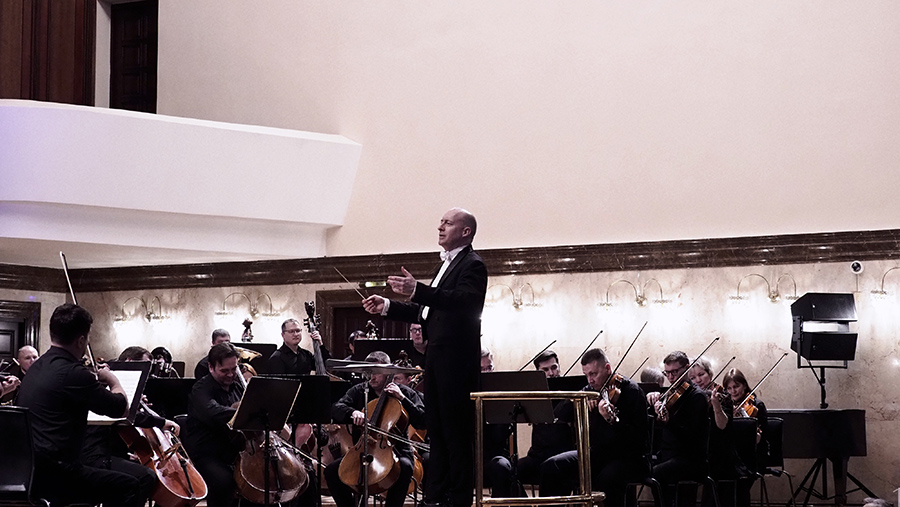
The opening night was given to Hungarian artists Daniel Szomodyi-Toth and Peter Szilagi. And the show will be closed exclusively by our compatriots — organist Vladimir Khomyakov and conductor Anton Shaburov. Well, in the middle is a joint performance by an organist from Japan and a conductor from the UK — a symbolic bridge between East and West (which is all the more relevant in Tatarstan).
It should be noted that, contrary to the rhetoric of their country's officials, Hiroko Inoue and Jeremy Walker are long—time friends of Russia, they even managed to learn Russian and did not reduce the intensity of their tours in our country after February 2022. At the same time, they have never performed with each other, and joint rehearsals are still ahead. So far, they have only had remote contact, by phone, but they communicated in Russian, Hiroko Inoue shared with Izvestia. By the way, her husband, Dutch organist Jean—Pierre Stuivers, is also in Russia on a month-and—a-half tour.
— We are very happy that in your country there is such a demand for our art, such an audience, and such mutual understanding! Hiroko Inoue confessed.
Jeremy Walker also speaks about mutual understanding, already in relation to GASO RT, with whom he has been speaking for several times.
— This is probably one of my favorite orchestras. The level of musicians is very high. They are all excellent professionals, and that's understandable. But what is also very important: our communication is truly friendly! — The British conductor does not hide his emotions.
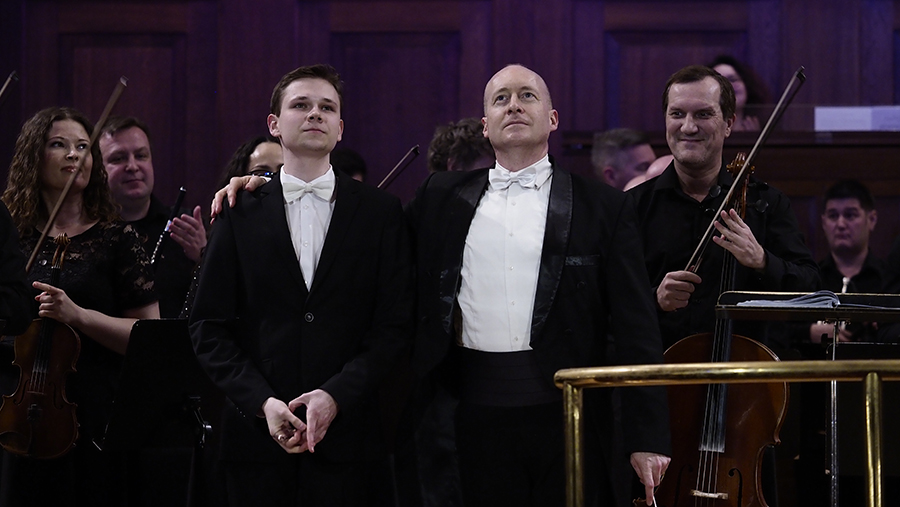
But for the very young Hungarian Peter Szilagi, this is his first performance in Russia, although he has performed in various European countries more than once.
— I haven't had time to walk around Kazan yet, although I plan to do so after the concert. But when I came here, I immediately felt the spirit of the great composers who lived here," said Silagi.
According to him, many people in Hungary have a good attitude towards Russia. When the artist told his friends and family that he would go to Kazan, they were pleasantly surprised, no one dissuaded him. On the contrary, they advised me to feel free and immerse myself in the great original culture of the country.
Views on Bach
However, the main star of the festival's opening concert was Peter's senior colleague Daniel Chaumodyi, who is an organist and conductor who appeared before the public in both roles. In the first section, he played solo, without an orchestra, and after the intermission he gave up his place at the lectern to his younger comrade Peter Szilagi, he himself stood at the podium and took over the management of the symphony orchestra.
But regardless of the role, this musician has two seemingly mutually exclusive qualities — rigor and emotionality. That's why the transition from Bach at the beginning of the program to Liszt (by the way, a compatriot of the evening's heroes) and, finally, Saint-Saens turned out to be so convincing.
Chaumogny's romanticism acquired a baroque precision and religious pathos, while Bach's polyphony, on the contrary, blossomed with spontaneity of feelings and intoxicating virtuosity.
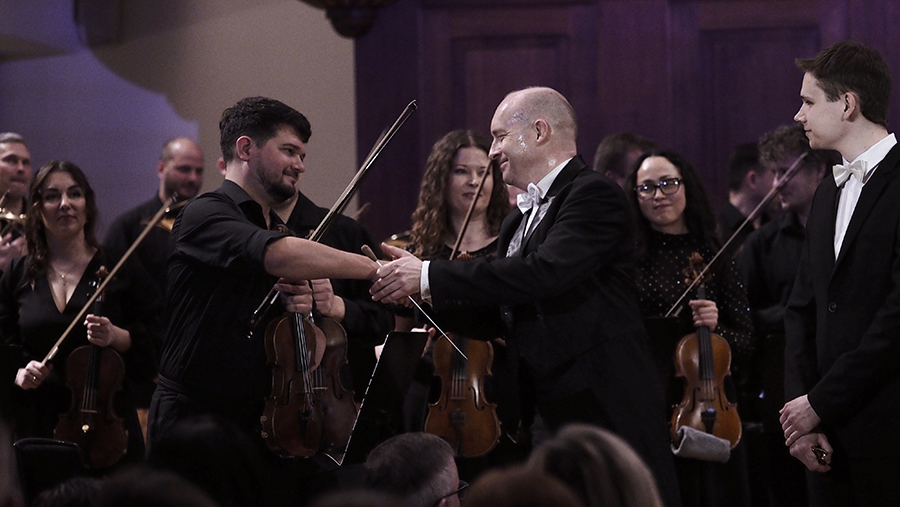
The concert was called "Around J.S. Bach" and was timed to coincide with the 340th anniversary of the genius, but perhaps it is better to christen the evening "Views on Bach": among these "spectators" are Liszt, who used the monogram of his predecessor BACH as the melodic basis of his opus, and Dupree, who processed a number from a Bach cantata. both Saint-Saens, who clearly focused on Johann Sebastian in the chorale and polyphonic episodes of his Symphony No. 3, and the performers themselves: Chaumodi-Toth and Szilagi.
What's he like, Bang? A scholastic or a passionate preacher? Is he an introvert immersed in philosophical reflections or an extrovert trying to capture the audience with eloquence? A mathematician from music or an inspired genius? The concert clearly showed that all these definitions are true in their own way. Bach is multifaceted, and therefore both close to everyone and incomprehensible.
For Shomodya, this is composer No. 1. But perhaps it is precisely this paradoxical versatility that attracts him. After all, he himself is multifaceted, at least in the areas of professional realization. Not only is he a conductor and an organist (this is not such a rare combination), but he is also an aviation specialist. His father was in charge of Budapest Airport, and young Szomodyi was seriously considering whether to become a pilot or a musician. In the end, art outweighed, but the love of heaven did not go away. And now Daniel not only periodically sits at the helm, but also runs a large business related to airplanes.
Shomodyi told Izvestia that in the future he would like not only to play, but also to fly as a pilot in Russia, and most importantly, he is aiming at a joint business with our companies on the development and production of seaplanes, as soon as the international situation allows.
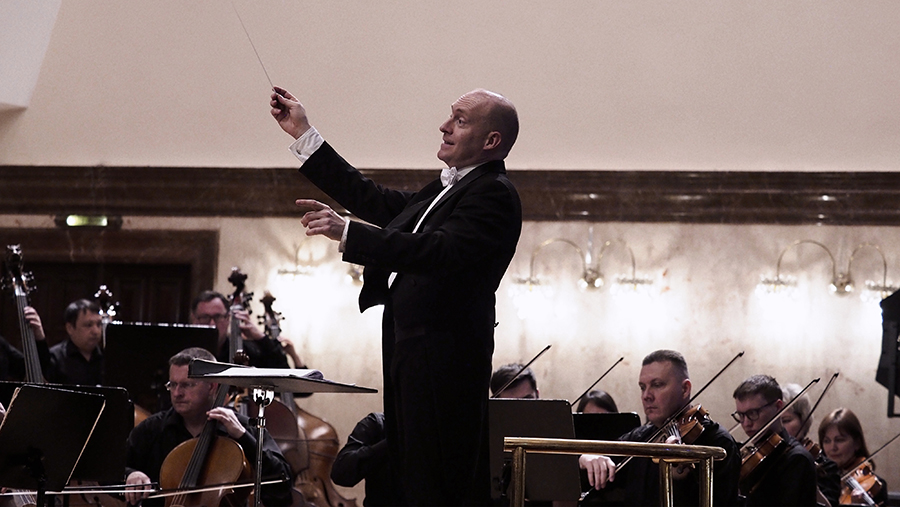
In the meantime, the maestro is happy to play music with the Russians.
"Playing a wonderful organ for one evening and then conducting one of the best symphony orchestras is a unique opportunity and a great honor for me," he continues thanking Sladkovsky and the festival for the invitation.
And — he promises to come again, for the anniversary of the artistic director of the GASO RT in October. In addition, the organist would like to perform in other cities of Russia. So, it is possible that, following Hiroko Inoue, his ties with our country will soon become even closer.
Переведено сервисом «Яндекс Переводчик»
